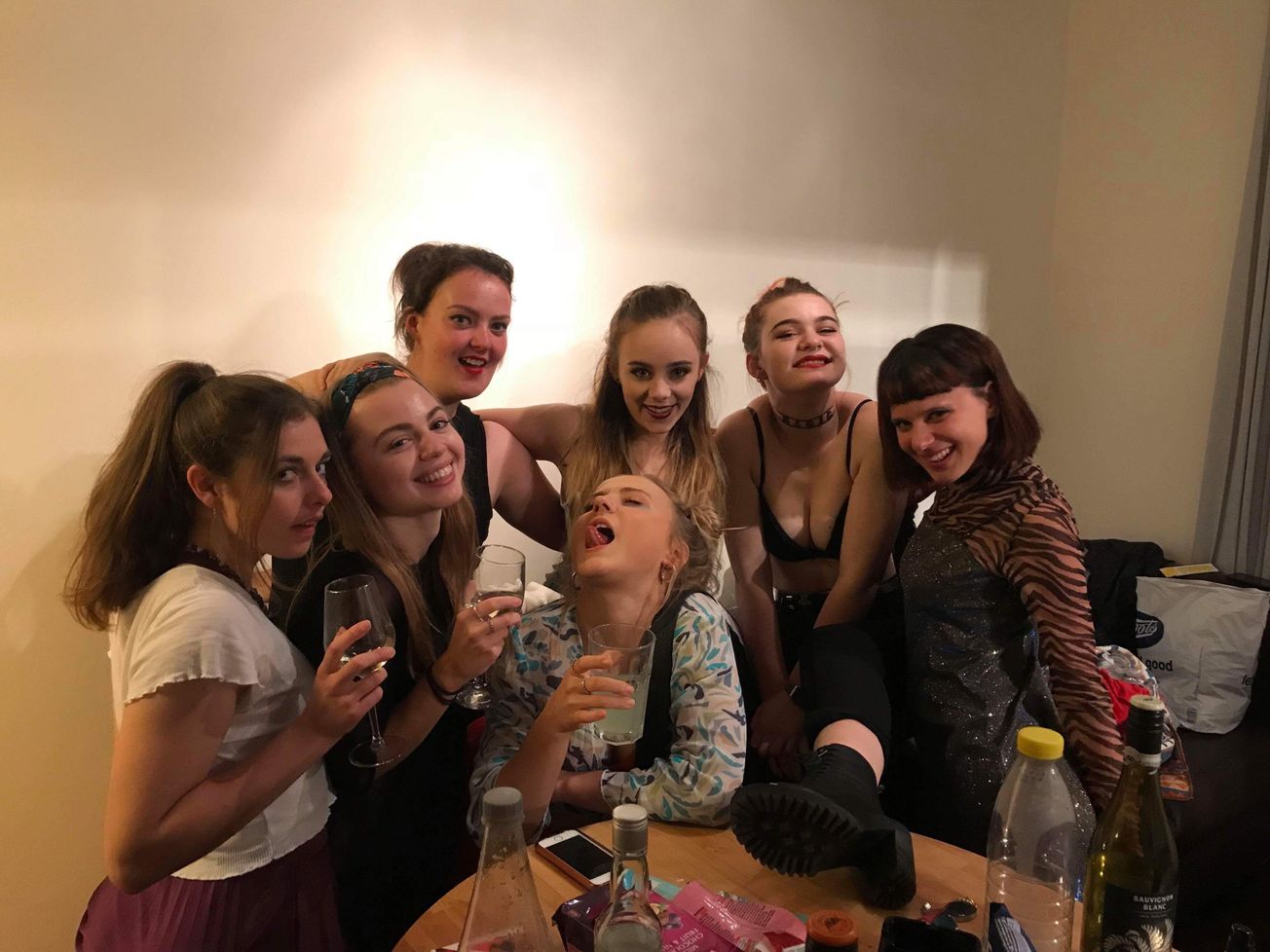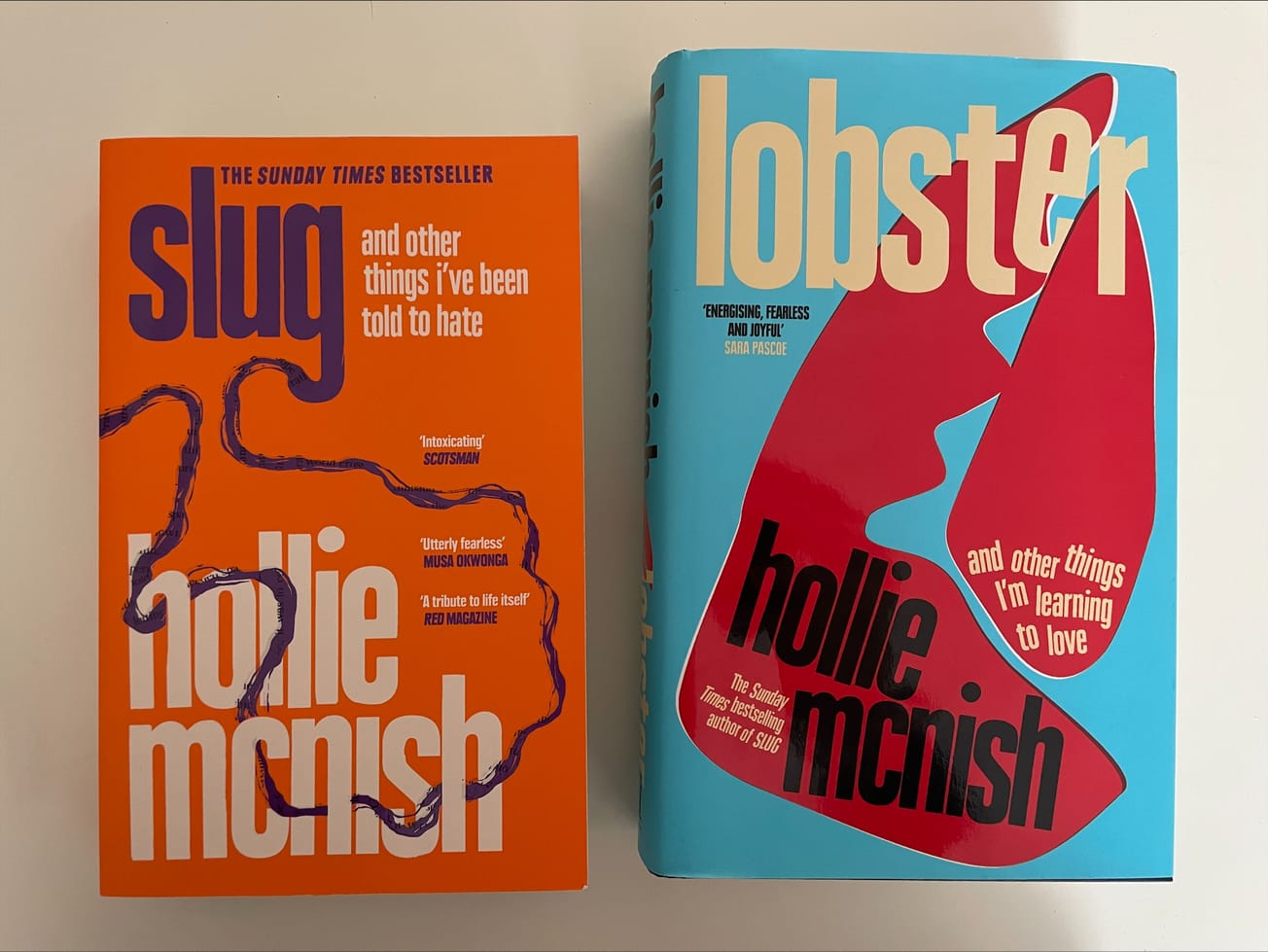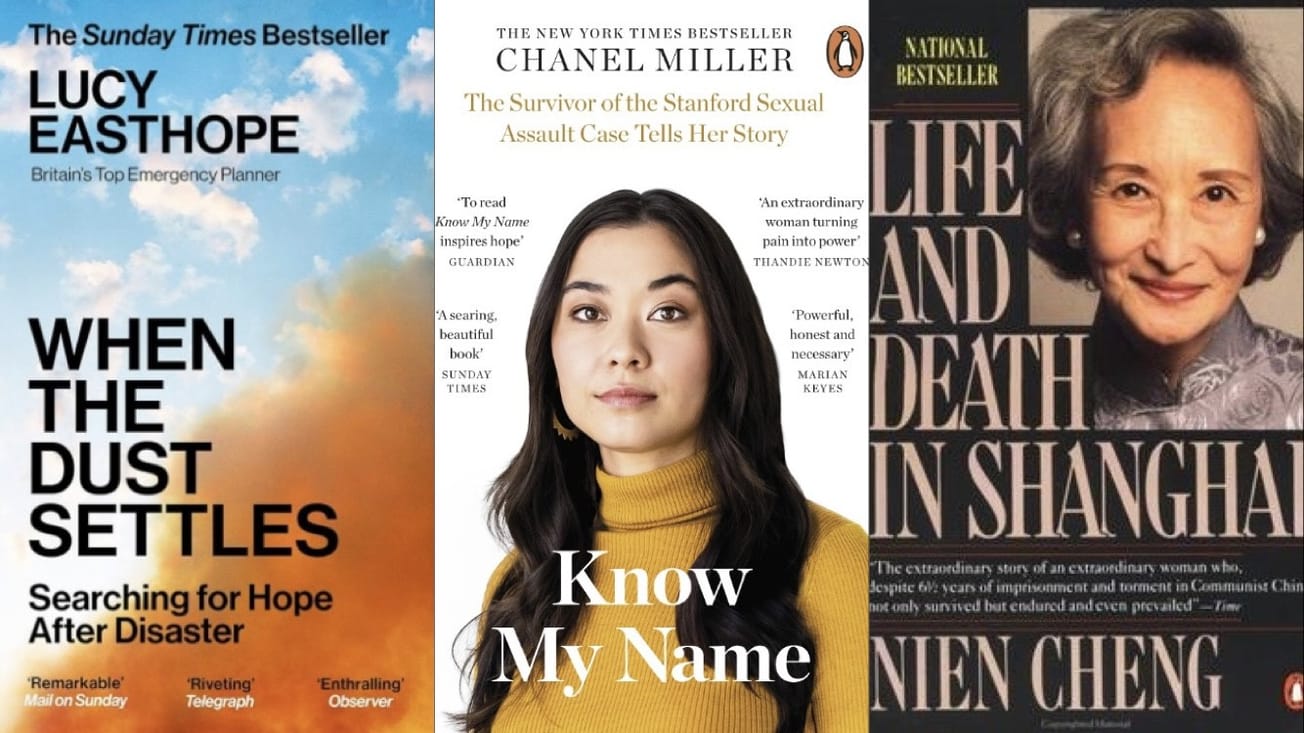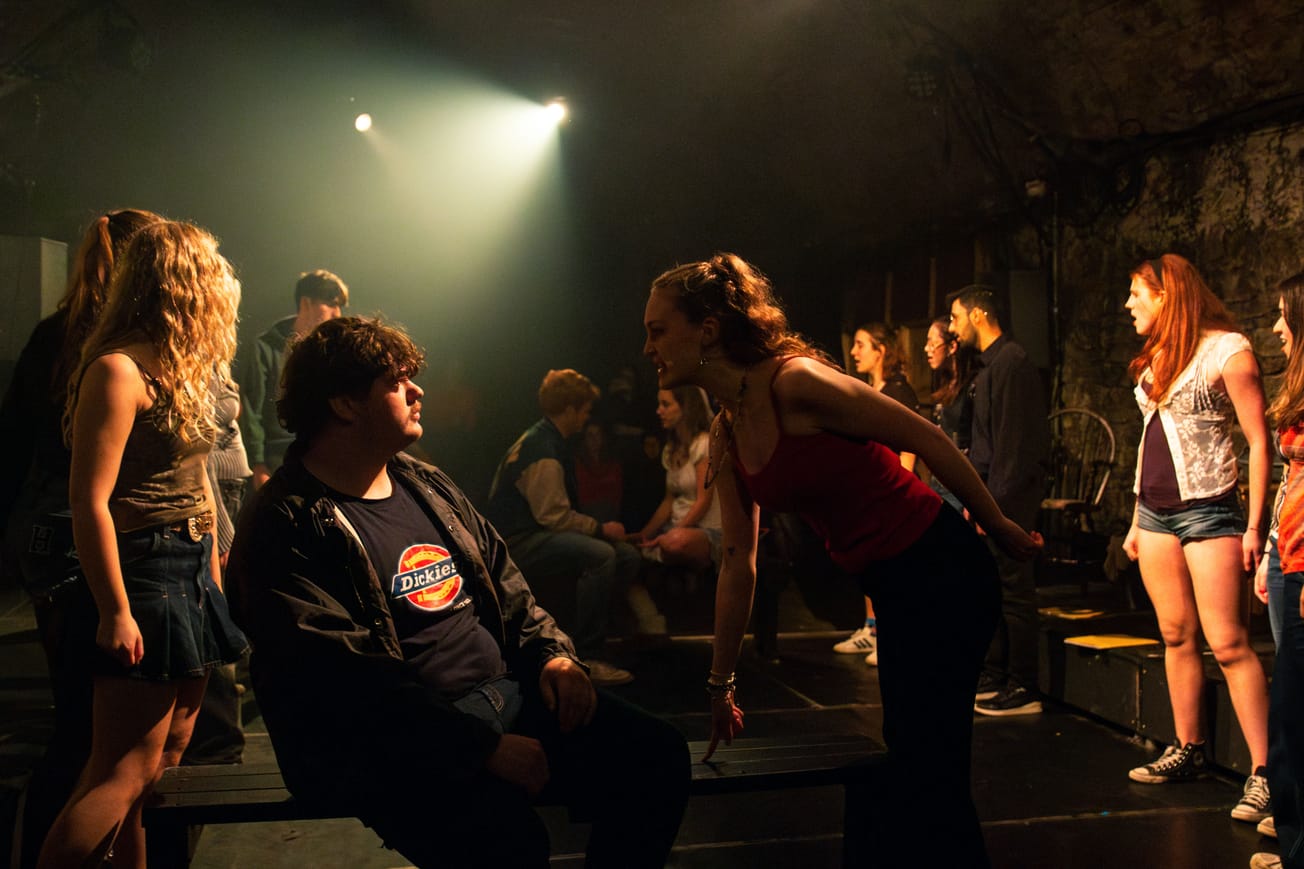Deputy Arts Editor Gabi Spiro chats with Bullet Theatre, an emerging theatre company from the University of Bristol who took their show FREAK to the Edinburgh Fringe Festival this year.
FREAK had a powerful message and slick delivery, but I wanted to learn a little more about Bullet Theatre's personal experience of the largest arts festival in the world. I sat down with Thomasin Lawson, who played one of the leads Georgie, and Katherine Latimer, director, to chat about all things Fringe.
Gabi Spiro: Please give us a brief introduction to the themes and premise of FREAK, why you chose this narrative and your decision to take it to the Edinburgh Fringe this summer.
Katherine Latimer: FREAK explores female sexuality, self-image, and sexual exploitation, by following the sex lives of two women: Leah who is 15, and Georgie who is 30. They are both embarking on very different experiences, yet we see that the same societal ideals and pressures influence their every decision. Our production combined Anna Jordan’s writing with fierce, innovative choreography.
"FREAK explores female sexuality, self-image, and sexual exploitation"
We always knew taking it to the Fringe was a possibility, but after a sell-out run in Bristol in March with so many women telling us after how much they related to the stories told in the play, and how much they took from watching it, this completely solidified our decision.
Freak has received such great response from our sell out/almost sell out audiences! We would love to hear from the views of a reviewer! Dm if you're interested in coming to the show tonight/tomorrow to review. Female sexual empowerment, embracing taboos and self image @theSpaceUK pic.twitter.com/qWkQ7EJko1
— bullet theatre. (@bullet_theatre) August 24, 2018
GS: Why was FREAK so important to your company and its ethos?
KL: FREAK crudely and unapologetically discusses taboos of female sexuality such as shaving, waxing, masturbating, or having sexual relations with someone of the same gender. We wanted to spread the message that these are completely normal things. While a lot of FREAK is humorous and touching, there are also some very dark moments. It’s important to show the horrific experiences that often come as part and package of female sexuality.
GS: What were the challenges/benefits of taking a show to the Fringe, compared to working on it in Bristol?
Thomasin Lawson: For me, the best thing about taking the show to Fringe was performing to audiences of a completely different demographic. The responses and atmosphere during the show varied hugely; the older audiences found Georgie much funnier than younger audiences who tended to feel more sympathy towards her from the start of the show.
"it was incredibly interesting to see how the show affected different people"
So, it was incredibly interesting to see how the show affected different people. Plus, feedback from people you have no relation to that is just as positive as the feedback from your friends is such a boost and really solidifies how proud you feel of what you’ve created.
KL: In Bristol, everything is less rushed and intense. Being at the Fringe as a director means frantically trying to do everything at once - run rehearsals, flyer, organise marketing through social media, stage manage – but this intensity is also what makes it so fun. It was amazing to be surrounded by this hub of amazing theatre, especially bold, fierce, female-led work, which made me feel so inspired and motivated.
GS: Was FREAK adapted and developed between preview performances and it’s run at the Fringe? Were you happy with the outcome?
TL: We tweaked some bits and bobs along the way in rehearsals for the Fringe. The ensemble became more prominent, which was great, and the feedback on the energy they created was fantastic. In terms of my character, I let myself become more connected to my emotions for the Fringe, which I was definitely quite scared to do in Bristol.
"I’ve never played a character who is quite so close to myself, and I felt crazy exposed"
I reckon this is because I’ve never played a character who is quite so close to myself, and I felt crazy exposed. But pushing it at Fringe felt amazing. I’d be looking at an audience member and they’d be crying, and I’d be crying, just thinking “Wow, this is some heavy duty stuff”, which just wouldn’t have happened in Bristol.
KL: We added more movement throughout, collaboratively workshopping ways to make powerful and raw physical depictions of how the characters are feeling. We also spent a lot of time doing physical exercises to help the girls feel more confident and empowered on stage, because the more they do, the more the audience will feel and believe it too.
@bullet_theatre's production of FREAK fucking blew me away. Some *phenomenal* acting in an ingenious production of one fucking gut punch of a play. You ladies fully crushed it. Go see their last show tomorrow @theSpaceUK!!
— Josh Vaatstra (@jvhimself) August 24, 2018
GS: What was your best Fringe experience and why?
TL: There are a fair few experiences that were just so phenomenal up in Edinburgh: the cast and crew really gelled, which made us and the show so much stronger, I met some hilarious and amazingly interesting people, but I’d say our opening night was probably the most rewarding experience.
"I’d been so scared of what people were going to think, it was such a release"
A sell out show, an audience engaged like no other, and then, come the curtain call, I blink and the whole audience is on their feet, applauding and cheering. I admit I did burst into tears; I just realised how proud I was of everyone. I’d been so scared of what people were going to think, it was such a release.
KL: Mine was also the first night of the show. As the cast came on to bow at the end, the audience immediately stood up to give a standing ovation, and I’ve never felt more proud and emotional that the production had moved people emotionally and that my work could have such an effect on people.
GS:What do you think is the biggest lesson you learn at the Fringe, either as an artist or on a more personal level?
TL: I learnt that you’ve got to look after yourself above anything else. It’s such a stressful environment: who’s flyering when, how many tickets have we sold, peoples’ voices are going, someone’s been stung by a wasp and is potentially quite allergic (guilty). But, at the end of the day – if you’re not looking after yourself, you’re not going to be able to give your all.
"taking a break and having a rest can be the best thing you can do"
You forget that taking a break and having a rest can be the best thing you can do, not only for yourself but for the whole team. Yes, people are relying on you, but if you’re not feeling on form then take some time to get back up there so you can bring all that energy and love and care to the show and the rest of the team. Also, don’t forget to pack a rain coat.
KL: I learnt not to be scared to tell your story, whatever it is. I saw so much bold, daring theatre about such important and often deeply personal issues like mental health, sexuality, and race. There are always people who can relate to your story or struggle – theatre helps us to emphasise with one another and realise we are not alone.
Katherine Latimer: We wanted to put on a production that provided gritty female roles https://t.co/7XlIKdjFoC pic.twitter.com/IMsEaccnpD
— The Fountain (@FountainReview) August 20, 2018
(Featured image credits: Bullet Theatre / Katherine Latimer)
What are your thoughts on Bullet Theatre and 'FREAK'? Let us know in the comments below or on social media.









